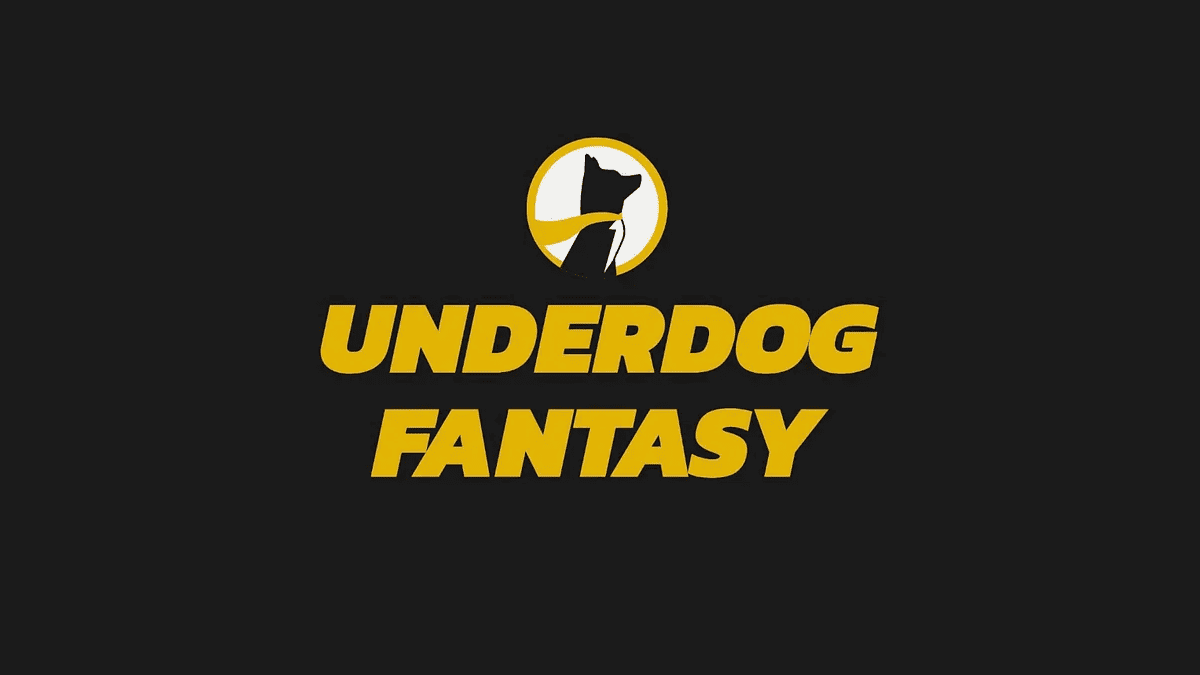Sports betting and daily fantasy sports (DFS) have a lot in common, despite some key differences. The nuances of the two leaves a lot of open questions. It’s important to understand the key points of similarity and difference when comparing sports betting to DFS so players can make the most out of each.
What are the differences between Sports Betting-DFS?
The differences between sports betting and Daily Fantasy Sports (DFS) may seem obvious. In the most basic forms of sports betting, you wager on the winner of a game (sides), a game’s total score (over/under) or a player’s performance (props). Wagers are usually placed online or at an in-person sportsbook that pays out a percentage of the bet if it wins. The House keeps remaining portion (known as “the Vig”).
The dynamics of DFS are quite different. You’re competing against at least one, but possibly thousands, of other people to put together the highest scoring lineup of players in a given sport on a given night. Each person pays an entry fee to get in the contest, with prizes paid out depending on how high your lineup finishes relative to the other participants.
DFS is similar to traditional fantasy sports but condensed into one day or night. Sites like DraftKings and FanDuel take a portion of the total entry fees as commission (known as the “rake”), but unlike sports gambling, you are competing against other players and not the House.
The differences don’t stop there. But while it’s true these two styles of sports gambling are distinct, it’s definitely worth considering what they have in common. In fact, understanding the relationship between sports betting and DFS can help you improve at both. Once you get a feel for that, you can decide which is better for you, depending on your goals and your personality (for example, your risk tolerance).
Before examining how and why sports betting and DFS relate to each other, it’s important to get a stronger sense of what sets them apart. The list of differences can go on and on, so this will cover only some of the key points of distinction and why they matter. This article focuses on bankroll concepts, playing against the house vs. your peers and the concept of correlation.
Bankroll Management in Sports Betting vs. DFS
Picking a team to win, an over/under or a player prop can just be simple entertainment for casual bettors.
Fans may have a take on who will win a game or how a game will unfold, and they’ll want to have “skin” on it. But the more you bet like this, the more the Vig will eat into your returns. Even if you’re wagering just for fun, you will still want to consider how to manage your money.
Sports betting and DFS require bankroll management in order to mitigate your risk. That said, the risk of basic sports betting is comparatively less than DFS because most markets have a 50% chance of landing on either side. For example, if you bet an NFL side– like the Packers to cover a 3.5-point spread against the Bears– it will go either way about half the time. As time goes by your results will be about 50-50 and you will only lose the Vig. To understand why standard betting markets end up that way, it’s worth looking into something called “The Efficient Market Hypothesis.”
Without getting into the finer detail of market theories, you should understand that even though you will hit some tough losing streaks when betting popular markets like sides and totals, your bankroll will be far less variant over time. And if you’re a winning bettor, you will increase your odds enough to profit over the Vig. Likewise, there are ways to mitigate your risk by hedging or laddering your bets with other markets.
These betting basics are quite different from most DFS results. There are “cash games” in DFS that have a more similar risk profile to sports betting, but those are far less popular, especially because projections like Stokastic’s make it nearly impossible to defeat peers who are using the same (or similar) resources.
If you’re playing DFS, you are probably playing in small medium or large-field tournaments. Regardless of size, those are highly variant formats that not only require different strategies for optimal play, but also a different understanding of bankroll management compared to the typical 50-50 nature of sports betting.
In DFS tournaments, you are only going to be paid if you are in or near the top 20% of the field. That means you will lose, on average, 80% of the time. When you do make it into the top 20%, you will receive a small payout; for example $15 on a $10 entry fee. Most of the prize pools in DFS go to the top 10% of contests, and the serious payouts you’ll need to sustain growth are in the 99th percentile or higher. Your bankroll will have to manage long periods of losing before you connect on those high percentile finishes.
These are important things to consider when you’re beginning to think about sports betting or DFS.
Playing Against the House or Playing Against Your Peers
The difference between betting at a sportsbook to win the house’s money and outcompeting your peers is a crucial distinction between sports betting and DFS.
When wagering on a sport, you only have to be concerned with whether or not your bet holds value. Put another way, you are asking yourself, “Is the probability of my bet winning high enough that it overcomes the Vig?” If you determine that a side or a player prop should hit 60% of the time, you can shop that at various outlets to see if you can get a price worth betting. These are the fundamentals of expected value (EV) and they are important for anyone betting long term, compared to the occasional action for entertainment’s sake. The only time this changes is if you are betting on low probability outcomes. In that case you can adjust your bet sizing to limit your risk.
In DFS, you will need to get a feel for the chances of your lineup succeeding, but that success is relative to what the field is doing. You and the rest of the world probably know that if LeBron James is sitting out for the Lakers, his backup is going to soak up his minutes and accumulate a ton of stats just by being on the court. The same is true for the other Lakers starters because some of LeBron’s ball-handling duties will go to Russell Westbrook, who can then pile up more assists, while rebounds that may have been grabbed by LeBron might be soaked up by Anthony Davis.
If that kind of information is new to you, good, you’ve learned something about DFS and you’re advancing. And you’ve also found something similar between DFS and sports betting on NBA props.
Unfortunately, the next thing to learn is that most DFS players in 2022 already know that kind of stuff.
What you have to decide on any given night is to what degree your peers playing in those DFS fields will weigh that information. Everyone might know that Westbrook stands to have a huge night with LeBron off the floor. But if everyone in DFS plays him, then you might be better off being the one person who doesn’t. After all, it’s those 1% finishes at the top of leaderboards that get the large payouts in DFS. You’ll lose most of the time, but in those rare cases where Westbrook fails you will stand to win big.
This is also where the concept of playing versus your peers connects to bankroll management. You will be foregoing a play with a higher likelihood of returning a small cash win to play somebody who can secure a large payout, albeit far less often. It can be a good idea to play lower volume on DFS lineups fading Westbrook, limiting your exposure to that rare outcome.
In DFS lingo, this is captured by the terms “ownership” and “game theory.” Even in sports where lineups don’t shift frequently and news comes out well in advance, you have to evaluate the best plays for DFS compared to what your competition thinks.
Stokastic’s ownership projections can give you a picture of what everyone else is thinking, but the nuances of how news, sentiment and timing influences the actual ownership once the DFS tournament starts is something that takes a bit of a feel for the game. Regardless if late news or significant changes happen throughout the week, you will need to incorporate ownership into your DFS process.
That isn’t to diminish the nuances of sports betting, which also require a keen awareness of how people value a team compared to your own analysis. Likewise, you can use various data sources to gather how betting markets are impacted by public or “sharp” sentiment, news and so on. However, how you apply that analysis is much more connected to your own personal betting choices and less about the choices others might be making.
Correlation is Key
Another important difference between sports betting and DFS is the value and application of correlation. That is, the knowledge that the players in a game or on a team do well when other players around them do well. When Stefon Diggs has two touchdown catches and racks up fantasy points, he does so by catching passes from quarterback Josh Allen. As they say, a rising tide lifts all boats.
You can already see why correlation matters in DFS. It’s hard to predict when a player will do well, so if you “stack” players whose success depends on one another, you have to get fewer things right. It takes a lineup that would essentially be a seven- or eight-leg parlay of individual results down to a five- or six-leg parlay, depending on how many correlated players your lineup includes.
In sports betting, the concept of correlation can be a bit foreign because many outlets won’t even allow you to make correlated bets. Sportsbooks know that if they do this, the odds tip in your favor. You can get around this by placing correlated bets across different sportsbooks, but that can become an arduous process to manage where you make bets, and also how it impacts your EV.
But you do have to consider correlation in sports betting, just not to the same degree as in DFS. You may also have opportunities to measure correlation if you are betting into “Same Game Parlays.” Many sportsbooks now offer unique odds menus for bets that are in the same game, usually at different prices or vigs than regular bets and with lines that are different from typical markets.
DraftKings’ regular odds screens might offer the Raiders at +7 at -110 and have a prop line of over 4.5 catches for Darren Waller at -110. Of course, if the Raiders cover this spread, there is a higher probability that Waller had a successful game and caught five or more passes. DraftKings normally wouldn’t allow you to make a correlated parlay, or two individually correlated bets.
Same Game Parlays make this possible, but might offer odds like Raiders +7 -120 and Darren Waller o/u 5.5 catches -110. In this scenario, you will need to think of how much value the correlation is adding to overcome the longer odds of hitting both legs of the parlay.
In short, correlation is important to understand in DFS and in sports betting. However, the way you apply correlation and the frequency at which you do differs significantly. In sports betting, you have to understand correlation for more exotic bets or as you look to widen the amount of bets you make through various outlets. You also have to look out for negative correlation within your own betting profile. If you have a futures bet on the Chiefs to win the AFC West, betting the Raiders +7 would have a slight negative correlation to the chances of cashing that futures ticket. At the same time, you might prefer that if you are employing a hedging strategy.
With DFS, correlation has to be understood in the context of one lineup compared and contrasted to everyone else in the field. The peers you are trying to top may be aware of the best stack of correlated players just like you are. That means you have to weigh the benefits of correlation relative to ownership. If you are playing multiple lineups, your portfolio of lineups can have negative and positive correlations as well, so you will have to develop a nuanced understanding of how sports and athletes work together or against one another.
Don’t Just Focus on the Differences
You may have read about the differences between sports betting and DFS bankroll management, playing versus peers, and correlation and thought ahead to how some of the concepts can work in unison. It’s true, and in most cases you will want to understand both sports betting and DFS to become stronger at each. In the end, they are about markets, pricing and value, applied in unique ways.
One thing that comes up is the science behind projecting sports and how that differs from making a qualitative assessment. The more you do this kind of gambling you will want to pinpoint value and potential outcomes. That helps you elevate your chances of winning, whether against the house or your peers, manage your bankroll, consider game theory and ownership, and so on.
The way to be more precise in sports betting and in DFS is by using projections. That could mean projecting the score or total of a game by building a sophisticated model. Or it could mean projecting how individual players will perform so you can derive their potential to score fantasy points or go over or under their prop line. The more you play DFS, the more those projections will be geared toward upside, which can help you understand when you can make higher-return prop bets as well. Likewise, when you bet on sports, projections can be used to accurately choose a side on a prop, which is exactly what our OddsShopper tool does.
On the matter of projections, it is important to understand the source you use and how those projections are made. When using Stokastic for a given sport, you should understand that projections can be originated, meaning the bettor or our data team develops their own model to predict outcomes. Or projections can be created directly from the sports betting lines.
Yes, the two are closely related because the accuracy of the betting market can be a source for understanding potential fantasy outcomes. This is particularly important for games that are harder to analyze and where less information exists, or simply less variation between DFS and the marketplace. Though one might be able to “originate” their own NFL or NBA lines, the betting markets are used to sync projections in events like tennis or Esports.
Sports bettors carry out a very similar process, and it is actually peer to peer in its own way. If you think of a betting line as a market where people decide where the value is, then you should think of how other people’s bets influence how the market moves and lands. Our OddsShopper page is full of experts who frequently track line movement in relation to “public” and “sharp” money, meaning how much is bet on a side, who is placing those wagers, and how the lines are reacting.
This is how sports bettors try to incorporate the “art” of knowing what the field is doing. When you bet and where you bet also factors into this. Did news of LeBron being out get released five minutes ago? That will definitely move the line, much like it will change how DFS players adjust their lineups. In general, betting early, when markets are less efficient and less information is available to bettors, is a strategy you will want to consider that ties the questions “When should I bet?” and “Where should I bet?” into a market perspective of sports betting as DFS.
The more you understand these, the more you can see the similarities between the two forms of gambling. DFS has been around for much less time than sports betting and has a lot of open questions. Does following the “public” and “sharp” money on betting markets help predict ownership in DFS? That’s just one of many.
Somebody is probably trying to figure these out, and the exciting part is that you can join the process while making a profit in an exciting and entertaining way.
So Which is Better, Sports Betting or DFS?
This has been a lot of information to digest, and to reiterate, it barely scratches the surface of what makes sports betting and DFS unique. That said, it should be enough for you to get a feel for the differences and to decide what is best for you. Ultimately, how to apply this information is your decision. Sports betting and DFS are nuanced styles of gambling, and whether you commit to both or just one, you should consider how they differ and also feed off each other.




























